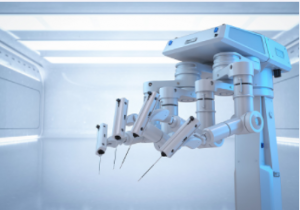Robotic surgery is a type of cosmetic surgical procedure, which are performed using remote-controlled robotic systems. Robotic surgery was first developed to overcome the drawbacks of existing minimally-invasive medical procedures and improve surgeons’ abilities doing open-heart surgery. It is also sometimes used to perform surgery on tissue outside of the body at the time of surgery.
Robotic-Surgery-Adelaide has produced a tremendous amount of new technology in the area of surgical robotics. New instruments, devices and systems have been developed. In addition, robotic instruments have enabled surgeons to operate with much higher levels of accuracy than was possible before. The advent of sophisticated software enables more targeted surgery and better outcomes for patients. All these advances in robotic surgery have made this type of surgery much more common and much safer.
There are some important differences between robotic and human surgery. Most significantly, a robotic surgical robot does not require anesthetics or pain killers during surgery, and therefore, patients can experience pain-free surgery. Also, a surgical robot performs much more quickly than a human surgeon could.
 Robotic-Surgery-Adelaide has introduced a new era of health care. Doctors and surgeons can focus more on the surgical task at hand than on other aspects of the patient’s body. The introduction of robotic systems and instruments allows for the removal or insertion of smaller and more complicated tools, which were previously only attainable through a complex series of human steps. Additionally, robots allow surgeons to work with smaller incisions, which can also reduce scarring. Robotic instruments also enable surgeons to use smaller and much more specialized tools than they could before.
Robotic-Surgery-Adelaide has introduced a new era of health care. Doctors and surgeons can focus more on the surgical task at hand than on other aspects of the patient’s body. The introduction of robotic systems and instruments allows for the removal or insertion of smaller and more complicated tools, which were previously only attainable through a complex series of human steps. Additionally, robots allow surgeons to work with smaller incisions, which can also reduce scarring. Robotic instruments also enable surgeons to use smaller and much more specialized tools than they could before.
However, the advent of robotics in the field of medical surgery is not without its controversy. The introduction of robotics has raised many ethical and legal issues in the realm of medicine. While some of these concerns have been addressed by legislative action, such as the bans on animal testing, others are concerned more with the impact of these technologies on patients’ rights. For example, about snoring, some argue that allowing a machine to perform such a delicate surgery in the back of a human will inevitably lead to suffering and death. While there is no way to know exactly what will happen in each case, as each patient’s case is unique, it is important to note that many current robotic surgery procedures use a “passive” method of recording patient data so that the exact impact of the surgery can never be accurately determined.
Another major ethical issue revolves around the potential abuse of power in the hands of surgeons and others in the operating room. While most robots used in surgical practices today can move freely within the patient’s body, it is still possible for a robot to miss a beat or take too long to react in a specific situation. Additionally, the full potential of these technologies is not currently available, as current versions are incapable of performing more than the basic.
There is also an ethical concern with the nature of robotic surgery itself. Surgeons may have the ability to order robots in any size or shape and any number of complex surgical instruments, to perform a particular surgical procedure. Additionally, such instruments may not be easily sterilized after use, meaning that they could potentially provide contact with infectious materials, leading to a host of risks to patients. To combat this, any physician who performs robotic surgery must ensure that all surgical tools are properly sterilized and that the instruments are regularly cleaned before and after use.
The advent of new technology, whether in the arena of medicine or of sports, has been met with both scepticism and cautious optimism. Whether or not this new technology will ever become commonplace remains to be seen. As with any new technology, there is always the possibility of unforeseen complications and adverse effects. However, if safety is a significant issue for you, you should certainly look into using a robotic surgeon. In the meantime, you can keep tabs on the progress of the newest technology by keeping up with news of its success or setbacks.
